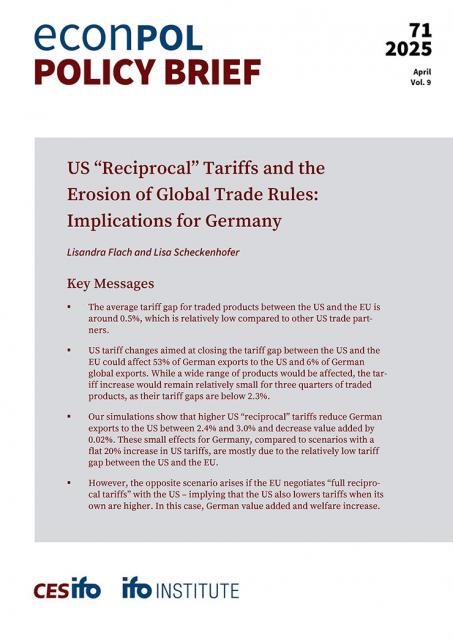News Archive

Regional Income Inequality in Germany
|
EconPol Forum
| News
Income inequality has increased in Germany. A new analysis shows that in 1998, the richest 10 percent of taxpayers earned 33.8 percent of total income. In 2016, that figure rose to 37.2 percent. Over the same period, the poorest 50 percent’s share of income fell from 19.3 percent to 15.9 percent. Differences in income within municipalities account for more than 95 percent of national inequality. On average, incomes in municipalities in western Germany are less equally distributed than in eastern Germany. Moreover, there are also differences between different cities.

Has the Time Come for Excess Profit Taxes?
|
Policy Brief
| News
Excess profit taxes (EPTs) emerge as an option to contribute to the extra needed revenues, avoiding a general increase in corporate tax rates, while having the prospect to serve as a gateway to converge toward a permanent efficient rent tax instead of the corporate income tax. General unilateral (temporary or permanent) EPTs would face the same international pressures from profit shifting and tax competition as the existing corporate income tax, calling for international coordination.

Disintegration of the EU Would Cause Massive Loss of Prosperity
|
Policy Brief
| News
A disintegration of the European Union would mean a massive loss of prosperity for the member states, finds a study conducted by the ifo Institute and the EconPol Europe.

What is Needed for New Partnerships between Europe and Africa?
|
Event - Livestream
| News
Climate crisis, Covid-19 pandemic, and Russia’s invasion of Ukraine: recent crises are creating new geoeconomic challenges. What do these challenges mean for future relations between Europe and Africa? What new opportunities will arise?

EconPol Newsletter 2023/01
|
EconPol Newsletter
| News
The latest issue of the EconPol Newsletter has just been published featuring the new Forum on the question “Climate Change: Greening the Economy by Green Finance?” and a new Policy Brief on interest rates and debt-financed government spending.
